Today Current Affairs: 9th June 2021 for UPSC IAS exams, State PSC exams, SSC CGL, State SSC, RRB, Railways, Banking Exam & IBPS, etc
Table of Contents
Lancang-Mekong Cooperation (LMC):

China is hosting Foreign Ministers from the 10 ASEAN countries. China’s Foreign Minister Wang Yi will also chair a meeting of the Lancang-Mekong Cooperation (LMC) with Cambodia, Laos, Myanmar, Thailand and Vietnam.
- Lancang-Mekong Cooperation is a multilateral format established in 2016 for cooperation between the riparian states of the Lancang River and Mekong River.
- The Lancang is the part of the Mekong that flows through China.
- Cambodia, Laos, Myanmar, Vietnam and Thailand are five downstream countries of the Mekong River.
RAMP Program:

The World Bank has approved a USD 500 million programs to help boost India’s MSME sector.
- The USD 500 million Raising and Accelerating Micro, Small and Medium Enterprise (MSME) Performance (RAMP) Program is the World Bank’s second intervention in this sector.
- The first being the USD 750 million MSME Emergency Response Program, approved in July 2020 to address the immediate liquidity and credit needs of millions of viable MSMEs severely impacted by the ongoing COVID-19 pandemic.
- The program targets improvements in the performance of 5.5 lakh MSMEs and is expected to mobilize financing of USD 15.5 billion, as part of the government’s USD 3.4 billion MSME Competitiveness – A Post-COVID Resilience and Recovery Programme (MCRRP).
- The RAMP program will provide better access to finance and working capital for MSMEs by strengthening the receivable financing markets.
- It will also scale up online dispute resolution mechanisms to address the problem of delayed payments.
- The USD 500 million loans from the International Bank for Reconstruction and Development (IBRD), has a maturity of 18.5 years including a 5.5-year grace period.
Draft Model Rules For Live-Streaming And Recording Of Court Proceedings:
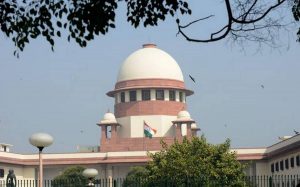
The e-Committee of the Supreme Court of India has released the Draft Model Rules for Live-Streaming and Recording of Court Proceedings and has invited feedback on them.
- The e-Committee of the Supreme Court of India along with the Department of Justice, Government of India is working under the National Policy and Action Plan for implementation of Information and Communication Technology ICT in the Indian Judiciary.
- Justice Dhananjaya Y. Chandrachud is the Supreme Court Judge and Chairperson of the e-Committee.
- The right of access to justice, guaranteed under Article 21 of the Constitution encompasses the right to access live court proceedings.
- According to the draft rules, all proceedings in high courts can be telecast except for cases relating to matrimonial disputes, gender-based violence, those involving minors, and “cases, which in the opinion of the Bench, may provoke enmity amongst communities likely to result in a breach of law and order”.
- “The final decision as to whether or not to allow the Live-streaming of the Proceedings or any portion thereof will be of the Bench, however, the decision of the Bench will be guided by the principle of an open and transparent judicial process.
- The decision of the Bench shall not be justiciable.”
Burkina Faso:

The death toll from the worst militant attack in Burkina Faso in recent years has risen to 132, after armed assailants laid siege overnight to a village in the jihadist-plagued northeast.
- Burkina Faso is a landlocked country in West Africa and is bordered by Mali to the northwest, Niger to the northeast, Benin to the southeast, Togo and Ghana to the south, and the Ivory Coast to the southwest.
- It was previously called the Republic of Upper Volta.
- Its capital is Ouagadougou.
- The country owes its former name of Upper Volta to three rivers that cross it: the Black Volta (or Mouhoun), the White Volta (Nakambé), and the Red Volta (Nazinon).
- The basin of the Niger River also drains 27% of the country’s surface.
United Nations Economic And Social Council, ECOSOC:
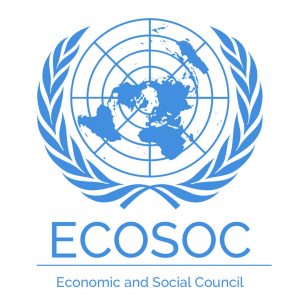
India has been elected to the United Nations Economic and Social Council, ECOSOC for the term 2022-24.
- The UN Charter established ECOSOC in 1945 as one of the six main organs of the United Nations.
- The Council consists of 54 Member States, which are elected yearly by the General Assembly for overlapping three-year terms.
- Seats on the Council are allotted based on geographical representation with 14 allocated to African states, 11 to Asian states, six to Eastern European states, 10 to Latin American and Caribbean states, and 13 to western European and other states.
- It is the central platform for fostering debate and innovative thinking, forging consensus on ways forward, and coordinating efforts to achieve internationally agreed goals.
- It is also responsible for the follow-up to major UN conferences and summits.
ECOSOC’s annual High-Level Segment includes:
- High-Level Political Forum, which reviews implementation of the 2030 Agenda for Sustainable Development, is convened under the auspices of the Council every July.
- Development Cooperation Forum reviews trends and progress in development cooperation.
- The specialized agencies of the United Nations are autonomous organizations working within the United Nations System, meaning that while they report their activities to the Economic and Social Council, they are mostly free to their own devices.
INS Sandhayak: Decommissioned:
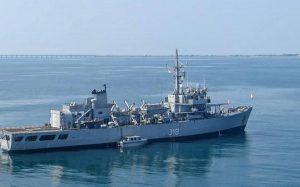
INS Sandhayak, the Indian Navy’s oldest Hydrographic Survey Vessel was decommissioned at Naval Dockyard in Visakhapatnam after serving the nation for 40 glorious years.
- INS Sandhayak undertook over 200 major hydrographic surveys.
- The ship also took part in important operations like
- Op Pawan in Sri Lanka, 1987,
- Op Rainbow for Humanitarian Assistance in the aftermath of the Tsunami in 2004 and
- the maiden Indo-US HADR Exercise Tiger-Triumph in 2019.
- The Sandhayak-class survey ships are a series of eight vessels built by Garden Reach Shipbuilders and Engineers (GRSE), Kolkata and Goa Shipyard, Ltd., Vasco for the Indian Navy.
QS World University Rankings 2022:
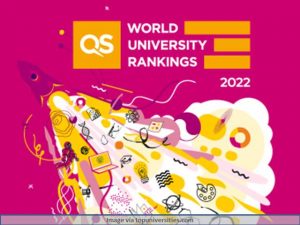
QS World University Rankings 2022 shows that India’s tally in the top 200 universities hasn’t changed for the fifth straight year.
Global Rankings:
- Massachusetts Institute of Technology (MIT) of the US is the top university for the 10th consecutive year.
- The University of Oxford (UK) has risen to second rank for the first time since 2006, while Stanford University (US) and the University of Cambridge (UK) share third spot.
Asian Institutions:
- Singapore’s National University of Singapore and Nanyang Technological University, and China’s Tsinghua University and Peking University, are the only Asian universities in the global top 20.
Indian Institutions:
- Overall, there are 22 Indian institutions in the top 1,000 list compared to 21 in the 2021 Rankings, with the Indian Institutes of Technology (IITs) in Guwahati, Kanpur, Kharagpur and Madras making major strides in rankings.
- Jawaharlal Nehru University has entered the top 1,000 of the rankings for the first time, as its new undergraduate engineering program now makes it eligible for the rating.
- IIT Bombay maintained its position as the top Indian institution for the fourth consecutive year, although it fell five places in the global rankings to the joint 177th position.
- IIT Delhi (185 ranks) overtook the Indian Institute of Science, Bangalore (186 ranks), giving India three institutions in the world’s top 200.
- IISc was also declared the world’s top research university by the indicator of most citations per faculty member when adjusted for faculty size.
QS World University Rankings:
- Quacquarelli Symonds (QS) is a leading global career and education network for ambitious professionals looking to further their personal and professional development.
- QS develops and successfully implements methods of comparative data collection and analysis used to highlight institutions’ strengths.
- The ‘QS World University Rankings is an annual publication of university rankings which comprises the global overall and subject rankings.
Joint Statement On Multilateralism: BRICS:
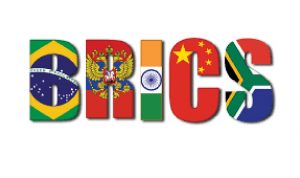
The BRICS Foreign Ministers, in a recent meet, put out a joint statement on multilateralism.
- BRICS is an acronym for the grouping of the world’s leading emerging economies, namely Brazil, Russia, India, China and South Africa.
Multilateralism:
- It is the process of organizing relations between groups of three or more states.
- It generally comprises certain qualitative elements or principles that shape the character of the arrangement or institution.
- These principles are:
- Indivisibility of interests among participants.
- Commitment to diffuse reciprocity, i.e. mutual exchange.
- System of dispute settlement intended to enforce a particular mode of behaviour.
BRICS:
- BRICS is an acronym for the grouping of the world’s leading emerging economies, namely Brazil, Russia, India, China and South Africa.
- In 2001, the British Economist Jim O’Neill coined the term BRIC to describe the four emerging economies of Brazil, Russia, India, and China.
- The grouping was formalised during the first meeting of BRIC Foreign Ministers’ in 2006.
- South Africa was invited to join BRIC in December 2010, after which the group adopted the acronym BRICS.
- India has assumed the BRICS Presidency from January 2021.
Surakshit Hum Surakshit Tum Abhiyan:

NITI Aayog and Piramal Foundation launched ‘Surakshit Hum Surakshit Tum Abhiyan’ in 112 aspirational districts.
- This drive was launched to assist the administration in providing home care support to Covid-19 patients, who are either asymptomatic or have mild symptoms.
- Most of these districts are in Jharkhand, Chhattisgarh, Odisha and Maharashtra.
- The campaign is under a special initiative – Aspirational Districts Collaborative – in which local leaders, civil societies and volunteers will work with the district administrations to address emerging issues across key focus areas of the Aspirational Districts Programme.
- It will be led by district magistrates in partnership with over 1000 local NGOs, which will enlist and train over 1 lakh volunteers to connect with patients through inbound/outbound calls.
- Volunteers will be trained to support 20 affected families each by educating caretakers to follow protocols, provide psycho-social support and timely updates about patients to the administration.
- Objective:
- It is aimed to reach every affected person in these 112 districts.
- The campaign is expected to play a key role in district preparedness for managing nearly 70% of Covid-19 cases at home, reducing pressure on the health system, and stemming the spread of fear amongst the people.
- It will provide long-term support to India’s poorest communities in the Aspirational Districts by addressing the lasting impact of Covid-19.
Aspirational Districts Programme:
- It was launched in January 2018, the ‘Transformation of Aspirational Districts’ Programme (TADP).
- Aspirational Districts are those districts in India that are affected by poor socio-economic indicators.
- These are aspirational in the context, that improvement in these districts can lead to the overall improvement in human development in India.
Saral Jeevan Bima: IRDAI:

Saral Jeevan Bima, launched by IRDAI (Insurance Regulatory and Development Authority of India) in 2020, has become a popular term life insurance product among the masses.
- IRDAI is an autonomous body that was established in 1999 to regulate and develop the insurance industry.
- IRDAI in October 2020 had mandated all life insurers to launch the Saral Jeevan Bima plans from 1st January 2021.
- Saral Jeevan Bima is a regulator-mandated standard term life insurance plan offering basic protections to people who are self-employed or belong to a lower-income category.
- It is a pure term life insurance product that can be purchased by people in the age group of 18 to 65 years and will have a policy term of 5 to 40 years.
- The sum assured for the term life insurance policy ranges from Rs 5 lakh to Rs 25 lakh (in multiples of Rs 50,000).
- However, the insurer will have the option of providing a sum assured beyond Rs 25 lakh.
- It provides for payment of sum assured in a lump sum to the nominee in case of the life assured’s unfortunate death during the policy term.
- There are no exclusions, other than suicides.
Autonomous District Council:
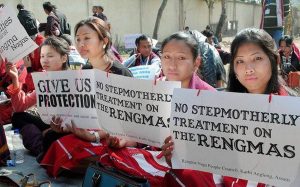
The Rengma Nagas in Assam has written to Union Home Minister Amit Shah demanding an autonomous district council amid a decision by the Central and the State governments to upgrade the Karbi Anglong Autonomous Council (KAAC) into a territorial council.
- With the Assam government on verge of inking a peace Accord with KarbiAnglong based militant outfits, NSCN-IM stated any agreement that victimizes the Rengma Nagas would not be acceptable.
- The issue in focus is Karbi Anglong, erstwhile known as Rengma Hills. Rengma Hills are made the victims of the aggressive influx of outsiders for vested interests.
- The Rengma Hills was partitioned in 1963 between Assam and Nagaland at the time of the creation of Nagaland State.
- As per the Sixth Schedule, the four states viz Assam, Meghalaya, Tripura, and Mizoram contain the Tribal Areas which are technically different from the Scheduled Areas.
- Though these areas fall within the executive authority of the state, provision has been made for the creation of the District Councils and regional councils for the exercise of certain legislative and judicial powers.
- Each district is an autonomous district and Governor can modify/divide the boundaries of the said Tribal areas by notification.
Operation Pangea XIV:
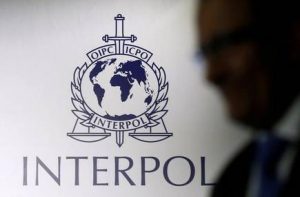
The International Criminal Police Organization (Interpol) through its Operation Pangea XIV targeted the sale of fake medicines and products online.
- More than 1.10 lakh web links, including websites and online marketplaces, were taken down in the operation.
- Operation Pangea is a well-established international effort of Interpol to disrupt the online sale of counterfeit and illicit health products. Just as importantly, Pangea works to raise awareness of the risks associated with buying medicines from unregulated websites.
- The first Operation Pangea was conducted in 2008.
- The current operation (14th) involved the police, customs, and health regulatory authorities of 92 countries. It was coordinated by Interpol. Indian agencies also participated in the operation.
- The Central Bureau of Investigation (CBI) is the nodal body for Interpol in the country.
- The online sale of illicit medicines continues to pose a threat to public safety, which is why operations such as Pangea remain vital in combating this global health menace.
- Criminals were continuing to cash in on the huge demand for personal protection and hygiene products due to the Covid-19 pandemic.
The Monsoon Session Of Parliament: Expected To Begin On Schedule In July:

The monsoon session of Parliament is expected to begin on schedule in July.
- The last session of Parliament was curtailed and ended sine die on March 25 and under the Constitutional norms, the next session has to be held within six months. This period ends on September 14.
- Three sessions have been curtailed since the pandemic began in March last year.
- The first of these was the Budget session of 2020.
- The winter session last year was also cut short. Last year, the monsoon session, which usually starts in July, began in September.
- Article 85 requires that there should not be a gap of more than six months between two sessions of Parliament.
- The Constitution does not specify when or for how many days Parliament should meet.
- The power to convene a session of Parliament rests with the government. The decision is taken by the Cabinet Committee on Parliamentary Affairs.
- The decision of the Committee is formalized by the President, in whose name MPs are summoned to meet for a session.




